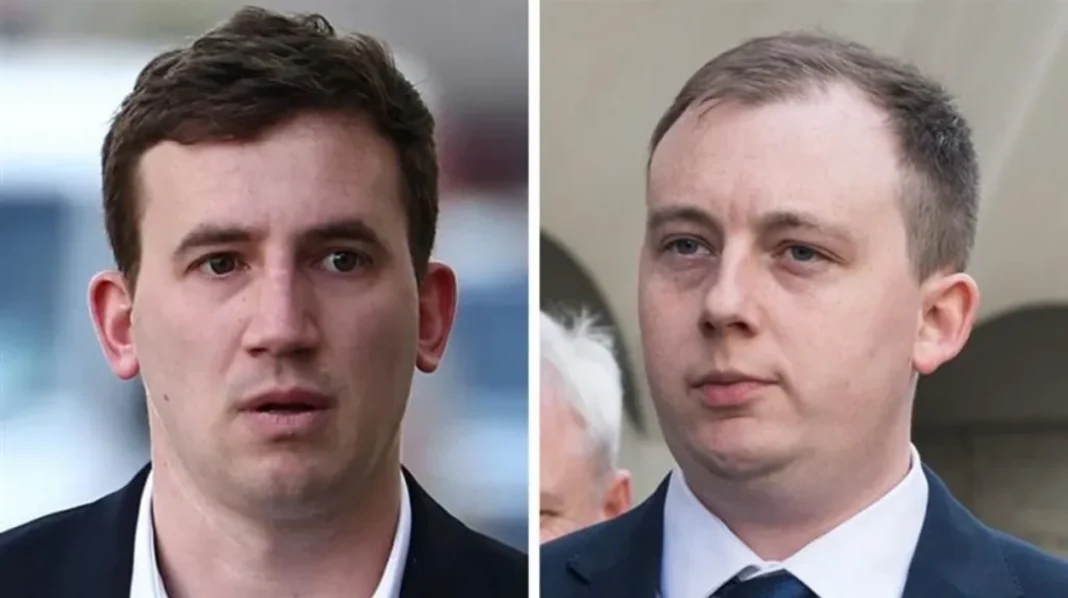The government firmly denies any involvement in a dropped spy case. Consequently, a political dispute over national security is now escalating. Number 10 has strongly rejected these allegations. Officials specifically refute claims they withheld key evidence. They also deny withdrawing witnesses from the legal process. Furthermore, they dispute restricting witness testimony.
This controversy involves two men, Christopher Cash and Christopher Berry. Both were accused of spying for China. They were charged under the Official Secrets Act. Prosecutors, however, dropped all charges in September. Both men consistently denied the allegations against them. This decision has sparked significant criticism from ministers and MPs.
The Prime Minister’s press secretary addressed the issue directly. He stated all suggestions of government interference are completely untrue. The Crown Prosecution Service (CPS) made this choice independently. He emphasized that ministers played no role in the decision-making process. The government expressed disappointment that the prosecution did not proceed.
The Crown Prosecution Service faces intense scrutiny. The head of the CPS, Stephen Parkinson, defended the agency’s action. He insisted no outside pressure influenced their decision. He explained the evidence no longer met the required legal test. Therefore, the case could not continue to a trial.
A recent newspaper report fueled the controversy. The Sunday Times claimed senior officials met about the trial. This meeting allegedly occurred before the collapse of the case. The report suggested the government’s legal stance created a major problem. The national security strategy does not label China as an “enemy”. This official terminology is crucial for prosecution.
Furthermore, the government’s China espionage case hinges on this specific legal definition. The Official Secrets Act requires proving information helped an “enemy”. Number 10 denies the report about the Whitehall meeting. The Prime Minister’s spokesman said no such discussion occurred. He clarified the government’s evidence used the previous administration’s policy. The alleged crimes happened between 2021 and 2023.
The Conservative government then described China differently. They called it an “epoch-defining challenge”. They did not use the legally potent term “enemy”. This distinction potentially weakened the prosecution’s foundation. The government’s China espionage case therefore faced a critical legal hurdle.
Several sources close to the trial expressed surprise. They told the BBC the CPS would not have charged lightly. They believed prosecutors initially had strong evidence. Something clearly changed before the trial’s start. This change caused the evidential standard to fail.
Conservative MP Alicia Kearns has been highly critical. She previously employed Christopher Cash as a researcher. Also, she finds the case collapse “inexplicable”. She believes the CPS acted independently. However, she suspects something was withdrawn recently. A witness or evidence may have been pulled. This action then spiked the prosecution’s ability to proceed.
Therefore, Kearns worries about national security priorities. She fears the government is resetting relations with Beijing. Consequently, security concerns might be taking a back seat. Foreign Secretary David Lammy recently visited China. He promoted pragmatic solutions between London and Beijing. The Labour government seeks closer trade ties with China. This diplomatic effort aims to boost economic growth.
Moreover, commons Speaker Sir Lindsay Hoyle also voiced concern. He warned Parliament is now more open to espionage. The dropped charges leave a significant security question unanswered. The government’s China espionage case remains a source of political tension and public debate.
For more political updates, visit London Pulse News.


